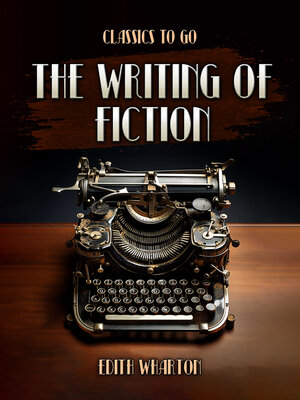
Sign up to save your library
With an OverDrive account, you can save your favorite libraries for at-a-glance information about availability. Find out more about OverDrive accounts.
Find this title in Libby, the library reading app by OverDrive.



Search for a digital library with this title
Title found at these libraries:
| Loading... |
Excerpt: "To treat of the practice of fiction is to deal with the newest, most fluid and least formulated of the arts. The exploration of origins is always fascinating; but the attempt to relate the modern novel to the tale of Joseph and his Brethren is of purely historic interest. Modern fiction really began when the "action" of the novel was transferred from the street to the soul; and this step was probably first taken when Madame de La Fayette, in the seventeenth century, wrote a little story called "La Princesse de Clèves," a story of hopeless love and mute renunciation in which the stately tenor of the lives depicted is hardly ruffled by the exultations and agonies succeeding each other below the surface. The next advance was made when the protagonists of this new inner drama were transformed from conventionalized puppets—the hero, the heroine, the villain, the heavy father and so on—into breathing and recognizable human beings. Here again a French novelist—the Abbé Prévost—led the way with "Manon Lescaut"; but his drawing of character seems summary and schematic when his people are compared with the first great figure in modern fiction—the appalling "Neveu de Rameau." It was not till long after Diderot's death that the author of so many brilliant tales peopled with eighteenth century puppets was found, in the creation of that one sordid, cynical and desolately human figure, to have anticipated not only Balzac but Dostoievsky."






